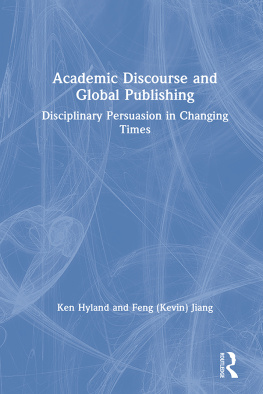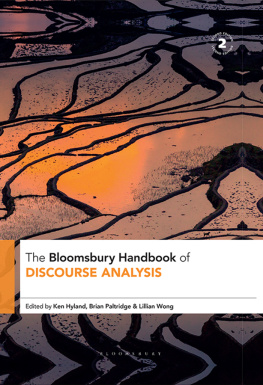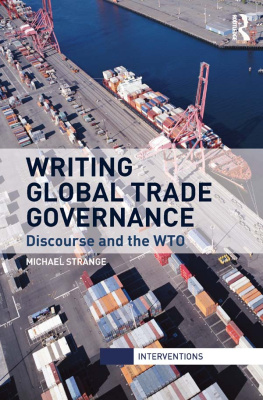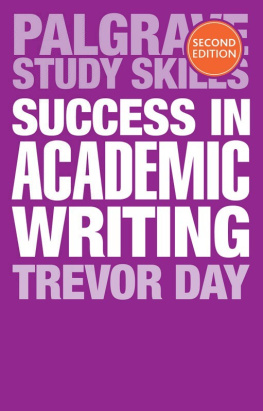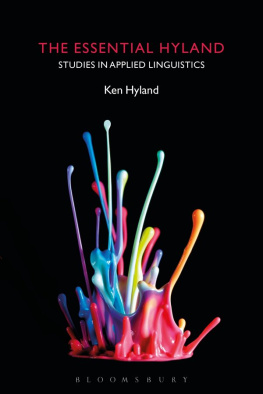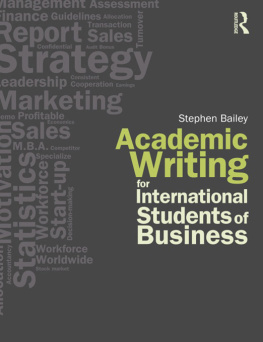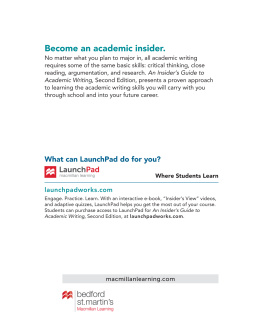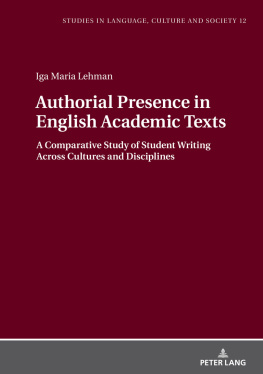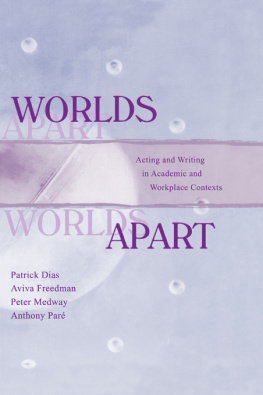This is a very timely and insightful volume that brings to the fore the changing rhetoric of scholarly publication practices through a useful integration of corpus and discourse-analytical perspectives. In taking a diachronic perspective to trace language variation and change in a range of specialised, discipline-specific discourses, Hyland and Jiang's volume provides rich perspectives into the way both monolingual and multilingual writers alike position themselves in their texts.
Carmen Perez-Llantada, University of Zaragoza, Spain
An excellent read! Through complex perspectives informed by MDA, cohesion and metadiscourse, Hyland and Jiang explain how changes in academic writing in a corpus of journal articles reflect the past 50 years of turmoil in the academy. This collection is recommended reading for novice and experienced researchers and research managers alike.
Sheena Gardner, Coventry University, UK
ACADEMIC DISCOURSE AND GLOBAL PUBLISHING
Academic Discourse and Global Publishing offers a coherent argument for changes in published academic writing over the past 50 years. Demonstrating how published writing represents academics decisions about how best to present their work, their readers and themselves in the global context of a rapidly shifting university system, this book provides:
- an up-to-date reference on contemporary topics in specialist discourse analysis, current research methodologies and innovative approaches to the study of writing;
- new insights into conceptual and theoretical issues related to the analysis of academic writing;
- an accessible introduction to diachronic research in EAP and a case for the value of the diachronic study of texts using corpus techniques;
- a clear overview of how texts work in interaction and how they relate to evolving institutional and political contexts;
- links between the practices of different disciplines and the environments in which they operate, as well as observations on the ways in which they differ.
This volume is essential reading for students and researchers of EAP/ESP and Applied Linguistics and will also be of significant interest to academics and students looking to have their work published.
Ken Hyland is Professor of Applied Linguistics in Education in the School of Education and Lifelong Learning at the University of East Anglia, UK.
Feng (Kevin) Jiang is Kuang Yaming Distinguished Professor in the School of Foreign Language Education at Jilin University, China.
First published 2019
by Routledge
2 Park Square, Milton Park, Abingdon, Oxon OX14 4RN
and by Routledge
52 Vanderbilt Avenue, New York, NY 10017
Routledge is an imprint of the Taylor & Francis Group, an informa business
2019 Ken Hyland and Feng (Kevin) Jiang
The right of Ken Hyland and Feng (Kevin) Jiang to be identified as authors of this work has been asserted by them in accordance with sections 77 and 78 of the Copyright, Designs and Patents Act 1988.
All rights reserved. No part of this book may be reprinted or reproduced or utilised in any form or by any electronic, mechanical, or other means, now known or hereafter invented, including photocopying and recording, or in any information storage or retrieval system, without permission in writing from the publishers.
Trademark notice: Product or corporate names may be trademarks or registered trademarks, and are used only for identification and explanation without intent to infringe.
British Library Cataloguing in Publication Data
A catalogue record for this book is available from the British Library
Library of Congress Cataloging-in-Publication Data
A catalog record has been requested for this book
ISBN: 978-1-138-35900-0 (hbk)
ISBN: 978-1-138-35902-4 (pbk)
ISBN: 978-0-429-43396-2 (ebk)
FIGURES
TABLES
The last 50 years have seen considerable changes in both research and publication practices in international English-medium arenas. Perhaps more so than at any time since the invention of the printing press. There has been, for example, an explosion of journals, papers, doctoral dissertations and books with the globalization of research and the encroaching demands of publishing metrics on scholars across the planet. The period has also witnessed the growth of collaboration and multiple authorship; the expansion of access to a massive online literature and the fragmentation and specialization of research. Equally importantly, there has been a growing imperative in recent years to reach new audiences and sponsors. Universities themselves recognize that they cannot be ivory towers of learning and have to engage with non-academic audiences. The mantra of knowledge exchange now means that many academics are also evaluated on community outreach as well as the academic impact of their work. These historical changes have consequences for rhetorical practices and the way academics write.
These practices, and the social context in which they have occurred, are the topic of this book. In it we investigate a range of discoursal features, some of which have received less attention in the literature than others, to determine what has changed and to give some tentative answers to the question of why they have changed. Has the imperative to publish more papers, conduct more collaborative research, talk to external funders and other non-specialists, and generally engage in a more explicitly cut-throat, metrics-driven academic environment changed academic argument styles?
Studying language change is, of course, by no means new, but while synchrony and diachrony are complementary perspectives on language use, research in academic and professional discourse has almost exclusively focused on the description and analysis of language as it currently is, rather than the historical processes that have shaped it over time. Here we address this gap to offer what we hope is a coherent, research-supported argument for rhetorical change in academic writing and the value of studying diachronic change. Using three corpora of leading journals in four disciplines collected to represent academic writing at three points in time, we explore how the rhetorical preferences of writers in different communities have changed. We will show how published writing represents the decisions of academics about how best to present their work, their readers and themselves in changing circumstances. Tracking variation over time helps to show how rhetorical conventions have shifted in response to major social, academic and political change.
The authors would like to thank the following publishers for permission to reprint modified versions of previously published material:
Reprinted with the permission of Oxford University Press:
Chapter 5: Hyland, K. & Jiang, K. (2017). Points of reference: changing patterns of academic citation. Applied Linguistics. https://doi.org/10.1093/applin/amx012.
Reprinted with the permission of De Gruyter:
Chapter 6: Hyland, K. & Jiang, K. (2018). Changing patterns of self-citation: Cumulative inquiry or self-promotion? Text and Talk. 38, 3, pp. 365387.
Reprinted with the permission of John Benjamins:
Chapter 7: Hyland, K. & Jiang, K. (2019). Academic lexical bundles: how are they changing? International Journal of Corpus Linguistics. 23 (4): 383407.
Reprinted with the permission of Sage:
Chapter 8: Hyland, K. & Jiang, K. (2016). Change of attitude? A diachronic study of stance.

